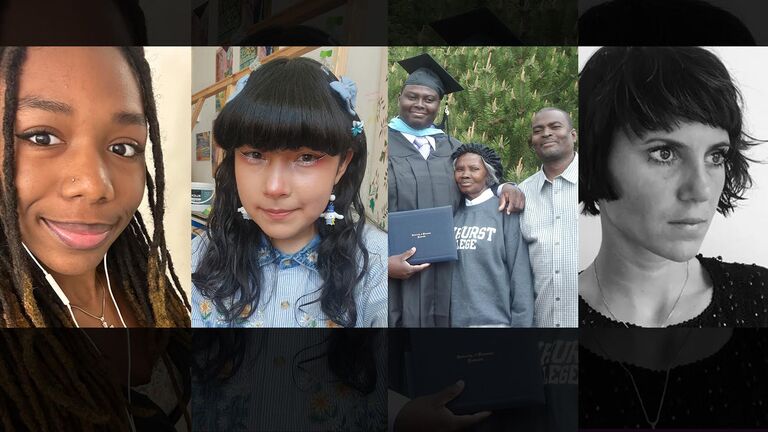
Sharing SAIC's First-Gen Stories
At School of the Art Institute of Chicago (SAIC), we celebrate our first-generation students every day—but we like to take an extra moment on First-Generation College Celebration Day every November. Here, four first-gen SAIC community members share their stories and advice.
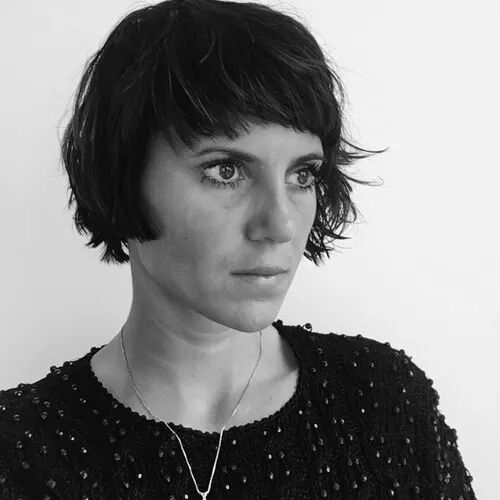
Cheryl Pope
Professor, Adj. Cheryl Pope’s (BFA 2003, MA 2010) practice emerges from the act and politics of listening. She is an interdisciplinary visual artist who questions and responds to issues of identity as they relate to the individual and the community, specifically regarding race, gender, class, history, power, and place. Pope has taken part in solo and group exhibitions all around the world. Her work is in the collections of Museum of Contemporary Art Jacksonville, the Museum of Contemporary Art Chicago, the UBS Art Gallery, and many more.
Why was graduating from college important to you?
I felt like it gave me a solid rock to stand on, and a place I could always go back to. In fact, I feel like I never left because the communication and network is still so much a part of my experience as an artist today. It’s one of the very first aspects I speak about when introducing my work, as it helps to position a framework and a thread of connections. But most importantly, it gave me that solid feeling in what it means to complete, to achieve, to come full circle. This feeling becomes repeated over and over again each time I finish a work in my studio, but completing college really gave me the strongest sense of knowing this feeling.
How did college help your career and creative practice?
It's totally ongoing in the way it continues to reveal its values and gifts at different stages in my career and practice. Whether it’s just returning to the School to go to the incredible library, remembering something a professor said that did not strike a chord then but lit me up right on time decades later, to meeting another colleague who happened to study here, too. I feel like it gives people in the industry a sense of knowing me without knowing me yet, because they know the core values of the School. The gifts just continue over time in ways I never would have expected. I think that's really the best part: it doesn't end at graduation at all!
What advice would you give to current first-generation college students?
To be vulnerable and open to sharing their experience. To wear their story with confidence, along with the value in all the strength and courage they have earned.
To ask, and to ask again—whether it's to know, to get clarity, to better understand, to nurture curiosity. This School in particular does a great job of having everything and balancing between handing it to you and having it but needing you to ask for it. I think this is so great because it simultaneously teaches you that life lesson: to ask.
Have patience. This is a marathon, not a sprint. Each will have their own time to shine. Stay close to and tend to your light!
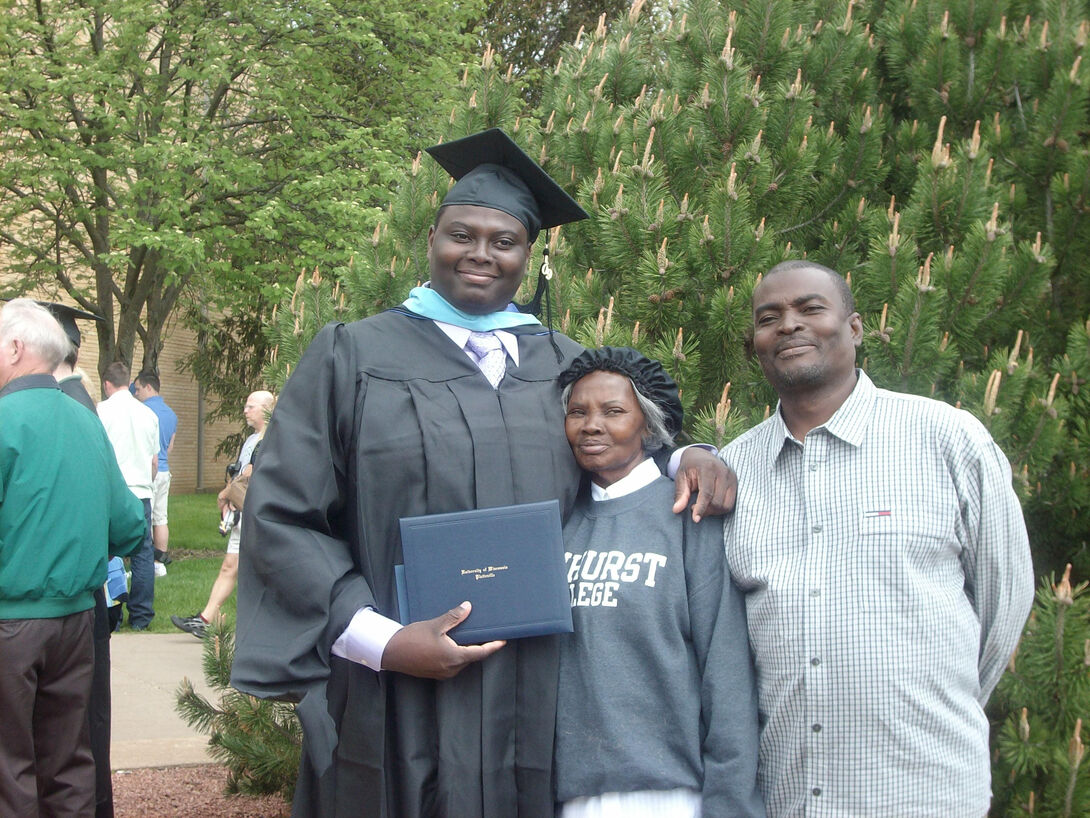
Karl Constant
Karl Constant is the director of Diversity, Equity, and Inclusion for Student Engagement. Karl is originally from Miami, but has lived in the Chicagoland area for more than 20 years. He is a first-generation American whose parents migrated from Haiti (Ayiti). Karl has been a full-time higher education professional for more than 14 years. At SAIC, Karl is building upon existing community-building initiatives.
How did college help your career?
College opened the door for my career path. Connecting with staff, faculty, and my undergraduate community sparked my love for event planning and community building. I was provided the space for self-discovery and opportunities that led me to where I am today.
What’s something that's unique to the first-generation college experience?
College is a leap into the unknown for first-generation students. My father told me, ‘This is as far as I can take you,’ which made this leap exhilarating and terrifying. As a first-gen student, I was forced to grow, develop new skills, and become a more confident version of myself.
What advice would you give to current first-generation college students?
It took me a while to realize that college is a team effort. Connect with staff, faculty, and your peers—most are happy to help or point you in the right direction. Building a support network is key to navigating the first-gen experience.
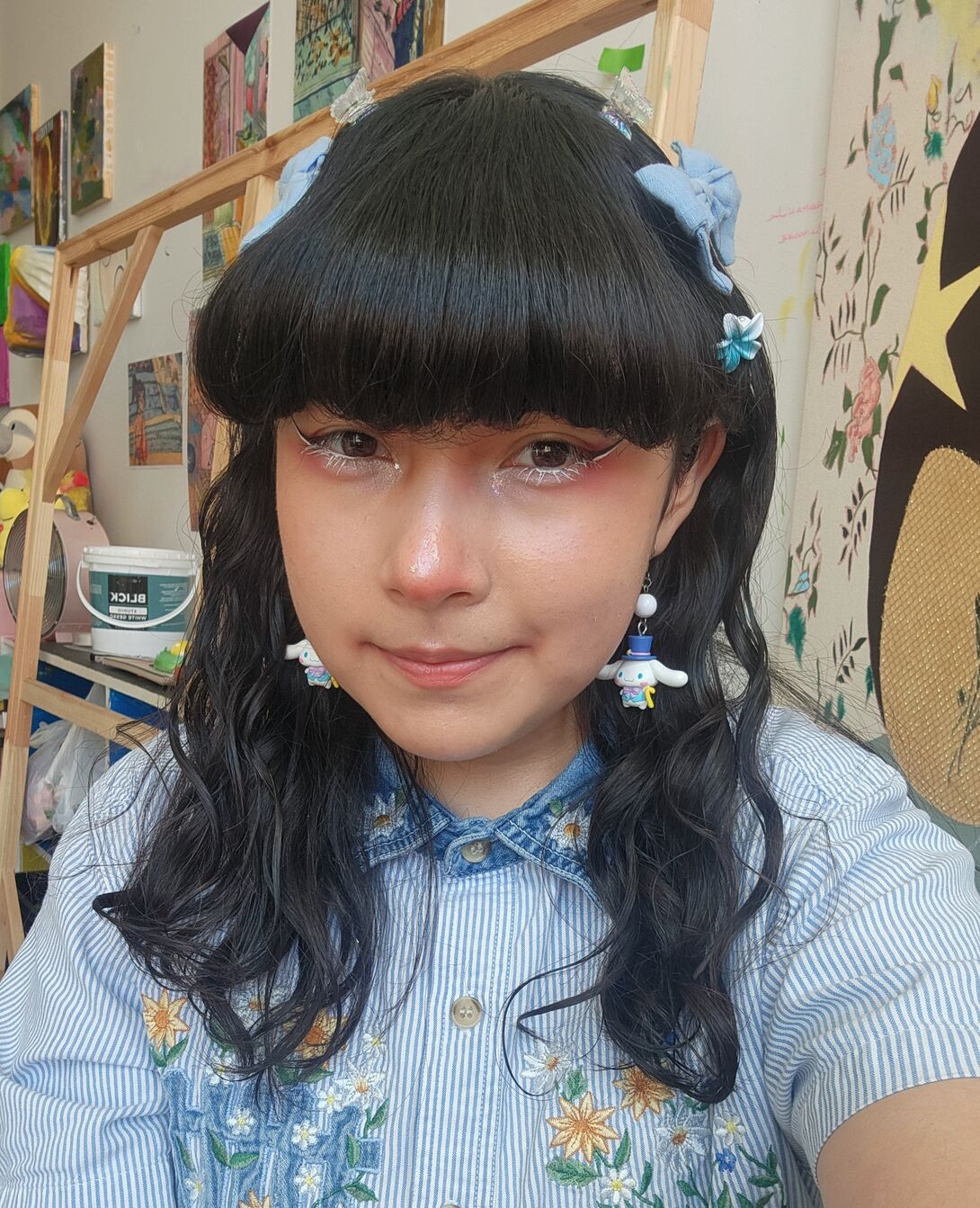
Jackie Patino
Jackie Patino (BFA 2023) is a Latine artist, born and raised in Chicago. She currently works within the School as an awarding specialist and is also a graduate student in the Painting and Drawing department. She’s had the chance to exhibit work throughout Chicago, San Francisco, and internationally.
Why was graduating from a four-year college important to you?
Graduating from college was really important to me because of the accessibility that higher education provides. Accessibility to careers, opportunities, research, and knowledge that normally people in my community and position would not have. Along with that, it was important for me to finish my degree because it allowed me to have a voice in a space that my family (and people with my experience) were not historically a part of.
How did college help your career?
Without my degree, I would not have qualified for the position I currently work in within the School [as an awarding specialist]. College has also allowed me to further pursue my professional artistic career through access to databases, research, and connections to other professionals, all of which allow me to continue investigation of my artistic and creative practice.
What advice would you give to current first-generation college students?
Navigating college is difficult, especially as a first-gen student, due to not having someone to aid and give you reference to. It can often feel isolating. The advice I would strongly suggest is not to be afraid to ask questions! So many teachers, educators, and departments are here to help you. It's important to build your community and surround yourself with a support system, especially when things get challenging and difficult. You do not have to do everything on your own!
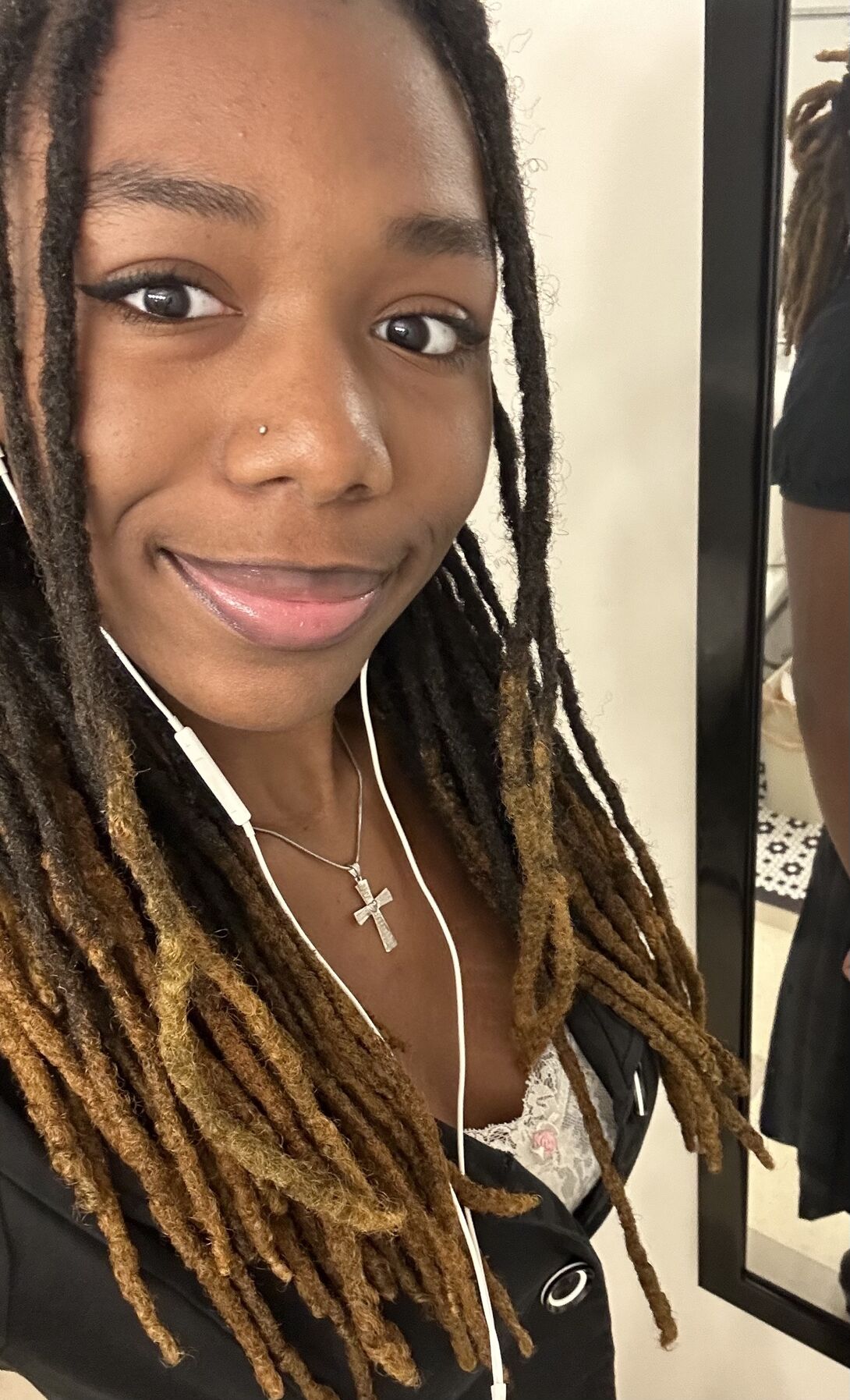
Kania Hinton
Kania Hinton is a second-year sophomore focused primarily on mixed media who is currently aiming to take painting and fibers classes. Their work tackles the challenges of the Black experience by using found/recycled material in relation to the African American diaspora. They are currently pursuing a BFA and expect to graduate in 2027.
Why is attending college important to you?
College allows me to be surrounded by a community of others with similar interests and goals, which has been super beneficial to my growth as a person and artist. I see higher education as a privilege, so my essential goal is to learn all I possibly can and utilize this privilege to the fullest.
What made you want to attend college?
I've always been extremely passionate about art and pursuing a career in the creative field. I wanted to be surrounded by like-minded individuals in a flexible environment, and college seemed like the perfect opportunity to expand both socially and creatively.
How have you felt supported by SAIC?
My peers, teachers, and advisors have made my experience at SAIC so much smoother and more manageable through simple things like communication, advice, and critique. With the help of others, I've received moral, financial, and emotional support through my artistic endeavors. I genuinely feel like the support I've received has helped extend the amount of time I've been able to attend the School.
